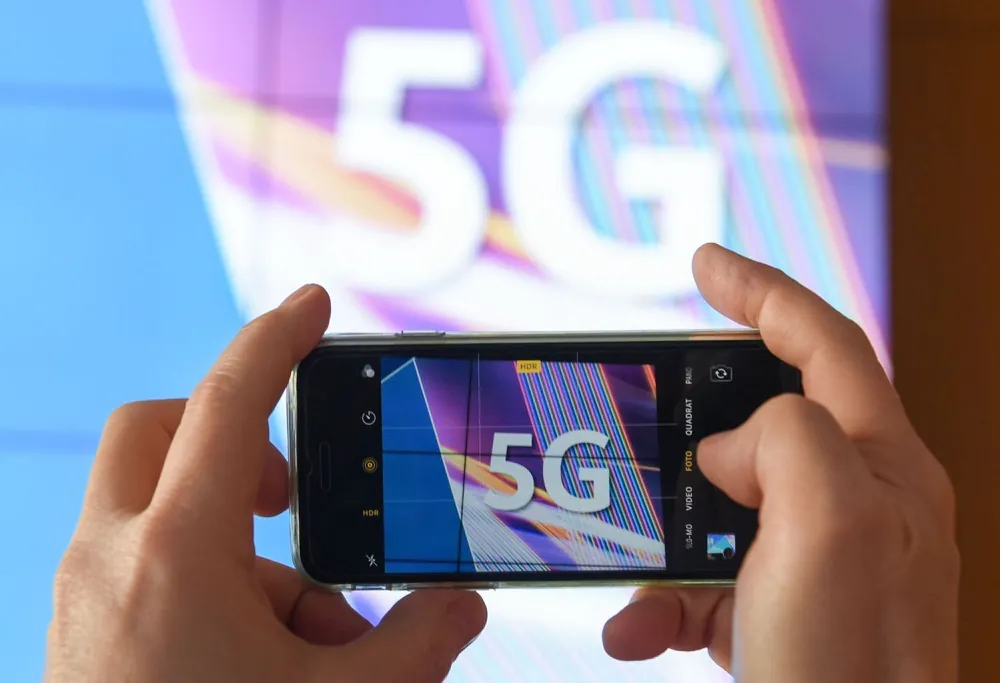© ROOT-NATION.com - Use of content is permitted with a backlink.
Having fast and reliable internet access on mobile devices is more important than ever before. With more people using smartphones and tablets for work, entertainment, and communication, high mobile internet speeds allow for a better user experience.

According to recent data from Statista, some countries are leading the way when it comes to mobile internet speeds.
Qatar Tops the List
As of June 2024, Qatar had the fastest average mobile internet speeds worldwide at nearly 335 Mbps. The country has invested heavily in telecommunications infrastructure over the past decade, laying thousands of miles of high-speed fibre optic cable. Qatar’s service providers offer 5G networks in most urban areas, providing users with lightning-fast speeds for streaming, gaming, and downloading content on the go. With average speeds over 330Mbps, mobile users in Qatar can access high bandwidth applications quickly and seamlessly.
UAE And Kuwait Follow Closely
The United Arab Emirates (UAE) registered average mobile speeds of over 323 Mbps, placing it second globally. Like Qatar, the UAE has prioritised the rollout of 5G networks and infrastructure to enable blazing fast speeds. Some estimates predict the UAE’s mobile internet speeds could reach 1 Gbps in the coming years.
Kuwait took third place with average speeds of 226 Mbps. The country has rapidly deployed 5G and fibre broadband to boost overall internet quality and accessibility.

High-Income Nordic Countries Rank Highly
Several high-income Nordic countries, including Norway, Denmark, and Sweden, rank among the top 10 countries for mobile internet speeds.
Norway took fourth place globally with average mobile speeds of 145 Mbps. Denmark followed closely behind with nearly 145 Mbps. Sweden, Finland, and Iceland also registered speeds above 100 Mbps.
The Nordic countries have invested significantly in digital infrastructure like broadband and 5G to reduce gaps between urban and rural areas. Their telecom industries also benefit from high mobile penetration rates.
South Korea And China In Top 10
South Korea and China placed sixth and seventh respectively for mobile internet speeds. South Korea is one of the most connected countries globally, with extensive 5G coverage and fibre broadband networks to enable its tech-savvy population to access content quickly.
China has rapidly deployed 5G services to keep up with its growing digital economy. Chinese telecoms aim to have over 300 million 5G subscribers by 2023.

Saudi Arabia and Bahrain Complete Top 10
Rounding out the top 10 countries for mobile internet speeds are Saudi Arabia and Bahrain.
Saudi Arabia averages just under 130 Mbps, with speeds up to 414 Mbps on newer 5G networks. The country aims to have nationwide 5G coverage by 2030.
Neighbouring Bahrain also invests heavily in digital infrastructure and 5G, resulting in average mobile speeds of nearly 121 Mbps.
Benefits Of Faster Mobile Internet
Having access to fast mobile internet provides many benefits for individuals and businesses. 5G networks with reduced latency allow mobile users to stream HD video, game, and download files seamlessly. High-bandwidth applications like videoconferencing, telemedicine, and VR/AR perform better with fast mobile speeds. Businesses can enable more remote work, better connect with customers digitally, and leverage data analytics in real time. This article from Melita offers some interesting insights into internet use worldwide.
Faster mobile internet ultimately drives digital innovation and economic growth.
Increasing 5G and Fiber Network Coverage
The countries with the fastest mobile internet speeds typically have high 5G and fibre broadband coverage. 5G networks offer data rates up to 100 times faster than existing 4G networks. More countries are deploying 5G infrastructure to enable smarter IoT devices and new innovations. Fibre broadband offers faster fixed-line connectivity to complement mobile networks. More fibre and 5G coverage worldwide will likely close the digital divide between countries in the future.

The Challenges Faced by Countries with Slower Mobile Internet Speeds
Some key challenges faced by countries with slower mobile internet speeds include:
- Limited access to high-bandwidth applications and services
- Reduced economic opportunities
- Growing digital divide
- Rural-urban discrepancies
- Strain on networks
- Limited adoption of new technologies
- Consumer dissatisfaction
- Difficulty in network upgrades
Overcoming these different challenges requires systematic improvements in both telecom policy and infrastructure. While fibre, 5G and new technologies can help, governments must also prioritise digital connectivity across all socioeconomic segments. Addressing mobile internet speeds ensures more inclusive digital transformation.
The Outlook For 6G And Beyond
As 5G networks become mainstream globally, experts are already researching the next generation of mobile networks.

6G aims to provide up to 1,000 Mbps data rates at much lower latency than 5G. 6G could utilise higher frequency bands like terahertz waves to transmit more data simultaneously. Beyond 6G, light-based LiFi technology might enable speeds up to 224 Gbps in future. While widespread 6G deployment may be a decade away, continued innovation promises even faster mobile internet speeds.
In 2024, a handful of high-income countries, primarily in the Middle East and Nordic regions, are leading globally for mobile internet speeds. But with more investment in digital infrastructure and the adoption of new technologies like 5G, countries worldwide are boosting mobile internet connectivity and quality.
High-speed mobile internet allows people to access more services digitally, work remotely, and enjoy entertainment on the go. While a digital divide still exists, faster mobile broadband coverage worldwide will likely lead to more inclusive growth and development opportunities.
With 6G and other emerging innovations on the horizon, mobile internet speeds are expected to accelerate further in the coming years.


